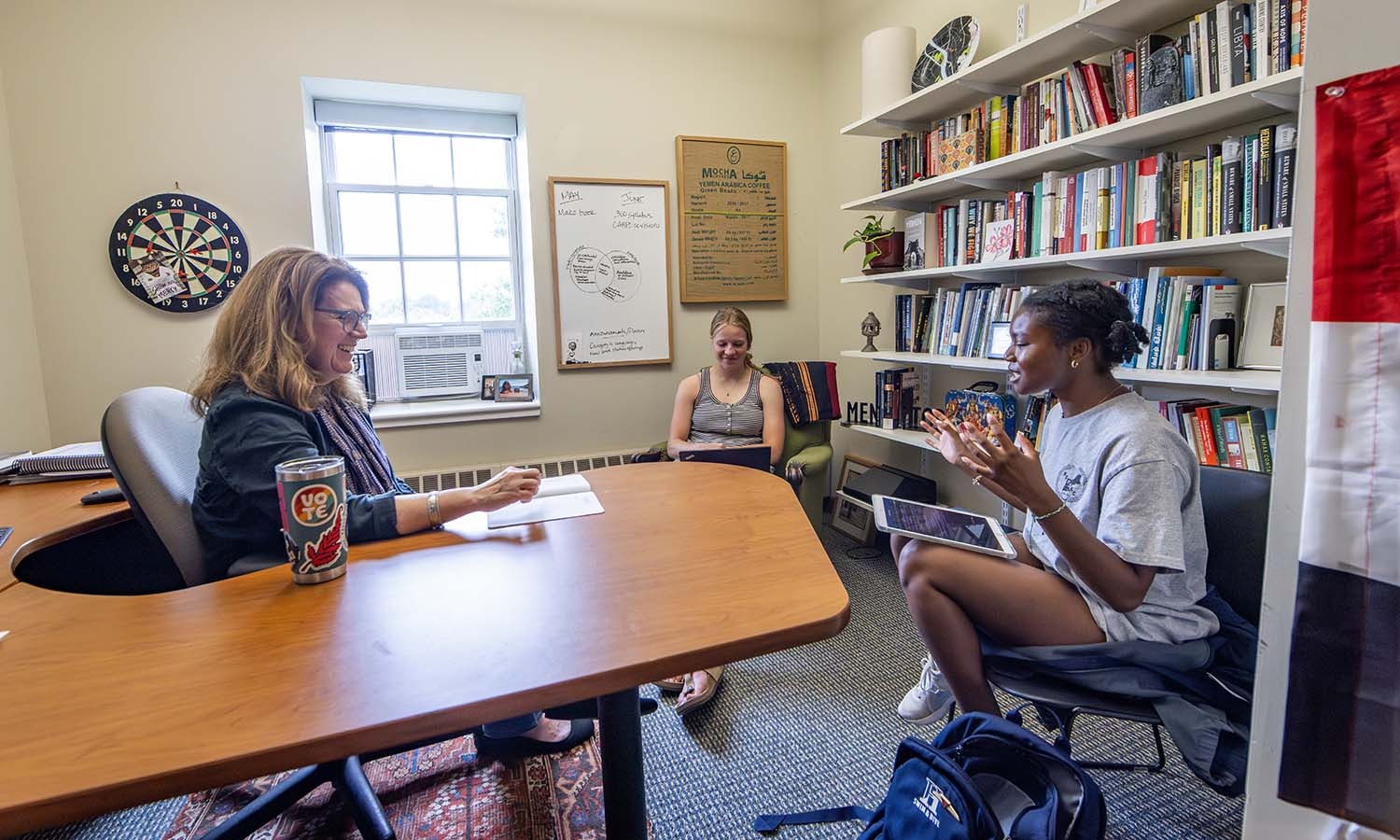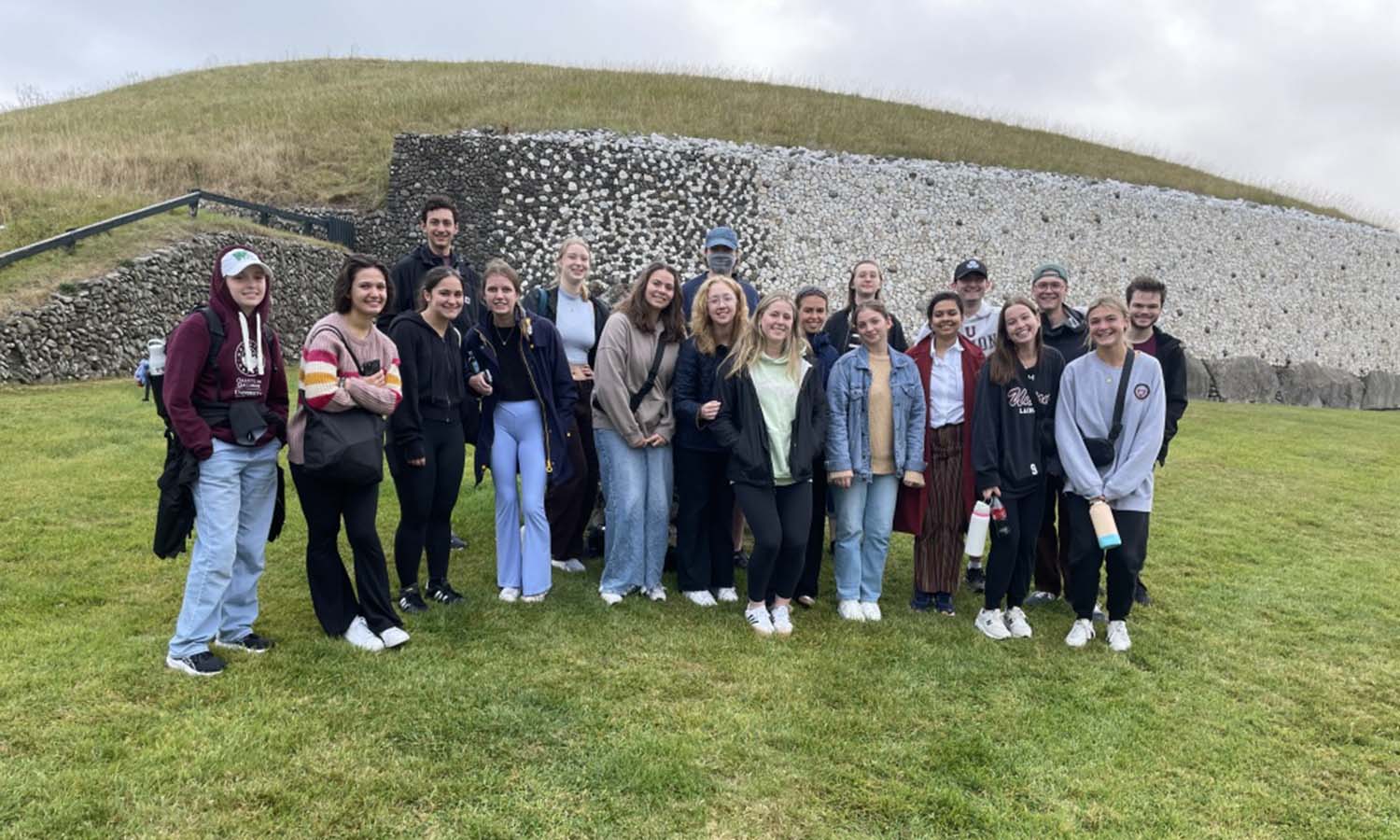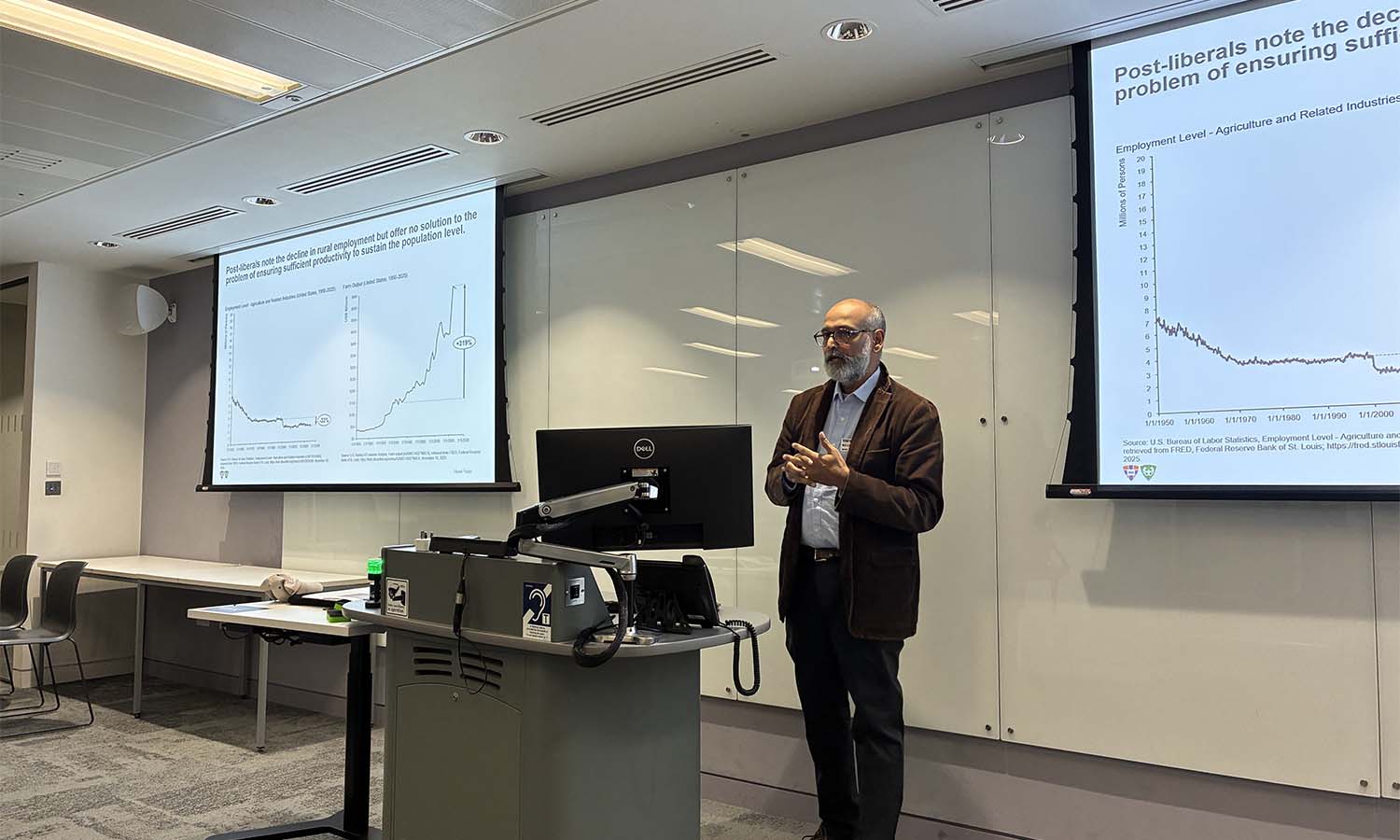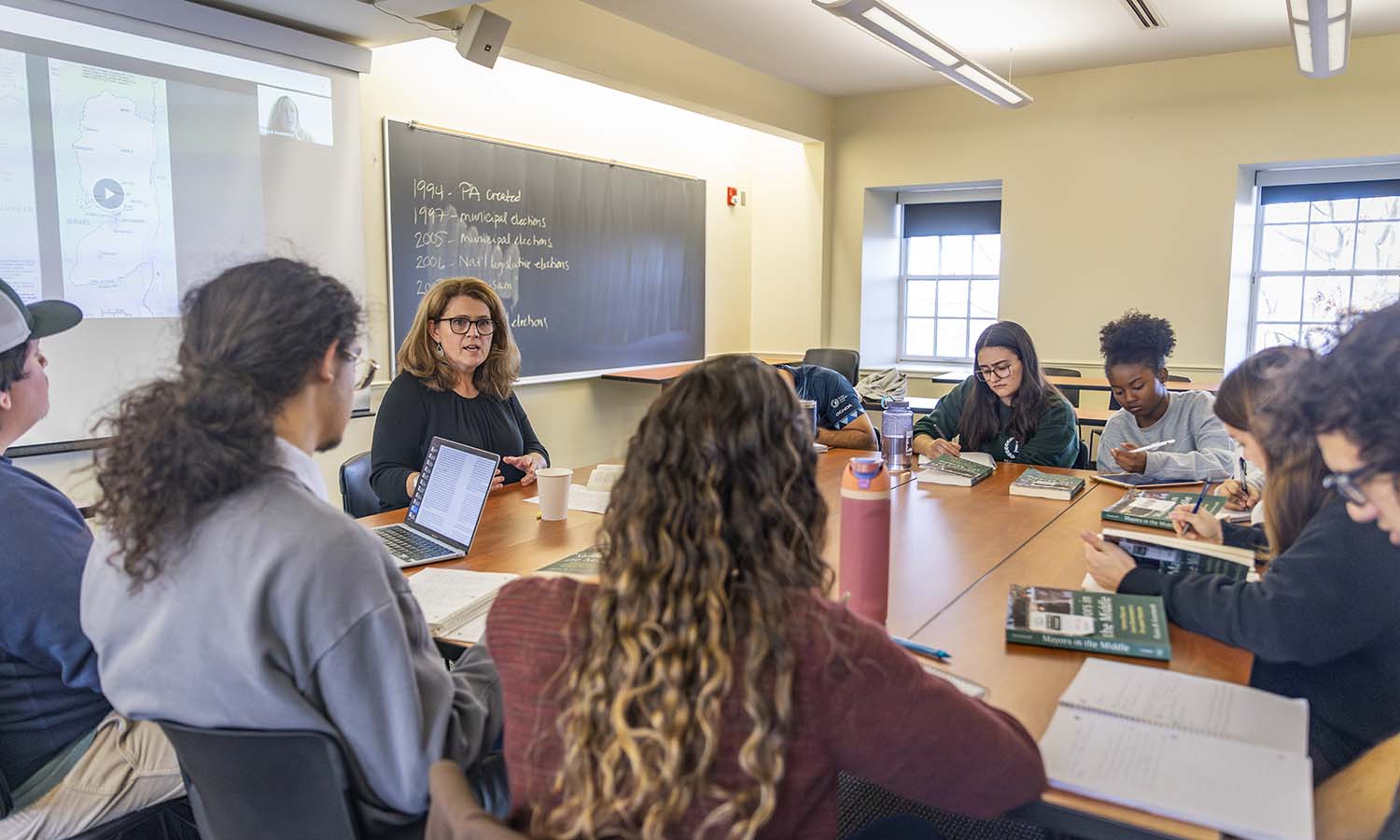
HWS News
15 September 2025 • Research Exploring Research Methodology
Students join Professor Philbrick Yadav in rethinking global policy research practices.
International Relations majors Meredith Montgomery ’27 and Chloé Woods ’27 collaborated this summer with Professor of International Relations Stacey Philbrick Yadav to examine a central question in applied international policy research: What changes when community members are treated as partners in the research and policy design process as opposed to objects of research and intervention?
Montgomery and Woods explored similarities and differences between two prominent approaches to research in international public policy: participatory action research (PAR) and engaged research (ER). Philbrick Yadav says Montgomery and Woods did more than review academic literature. They performed a small-scale digital ethnography by participating in online trainings and short courses offered by a prominent international peace-building organization. They helped develop some of the assignments Philbrick Yadav will use in her fall courses, and they compiled a reading list for a training workshop geared for researchers learning about PAR, which Philbrick Yadav will co-direct in Qatar early next year.
Philbrick Yadav was looking for a way to translate what makes PAR so transformative in social science research, Montgomery says. The work gave Montgomery a chance to dive into the ethics and politics of research methodology.
PAR, Montgomery says, is a research-to-action approach. “It aims to co-construct knowledge between researchers and local stakeholders,” she says. ER, by contrast, may consult with locals, but researchers still drive the project design. The distinction matters, Montgomery says. “What makes PAR transformative is that they combine local participation in the research process with democratic decision making to translate policy into relevant outcomes.” Those outcomes may mean access to changes that can affect people’s way of life, Montgomery says.
Woods adds, “PAR gives voice to the otherwise-unheard.”
In their own work, Woods and Montgomery learned through collaboration. “Meredith and I weren’t just dividing up tasks—we were constantly bouncing ideas off each other,” Woods says. “That’s part of the spirit of PAR itself: knowledge gets built through dialogue and cooperation.”
Both students see lasting impacts from the experience. Montgomery, who will study abroad in France this fall before pursuing graduate study, says the project has shaped her sense of ethical research and the aim of her future work. “Professor Philbrick Yadav’s passion for Yemen policymaking and ethnographic research has inspired me to focus more deeply on a specific area as I continue my studies,” she says.
For Woods, who will present their joint findings on campus this fall, the work adds to her desire to make research more inclusive: “Academia has too often given voice only to the researcher,” she says. “PAR pushes us to share that authority and to think about whose knowledge counts.”
Top: Meredith Montgomery ’27 and Chloé Woods ’27 chat with Professor of International Relations Stacey Philbrick Yadav.



